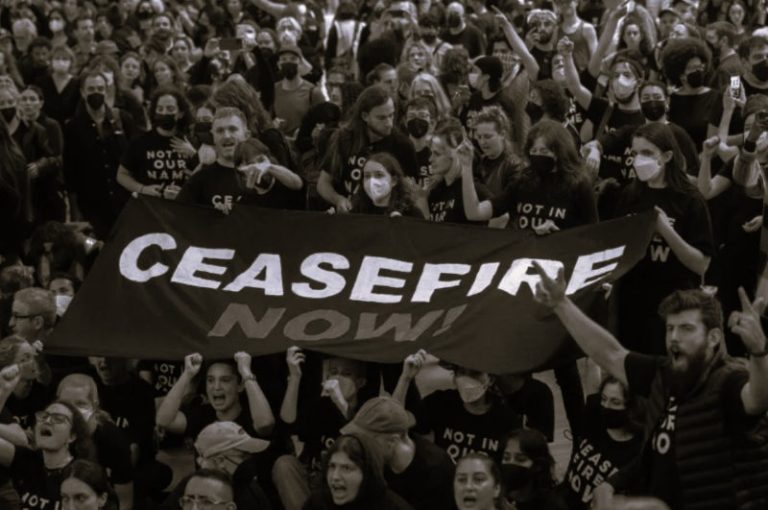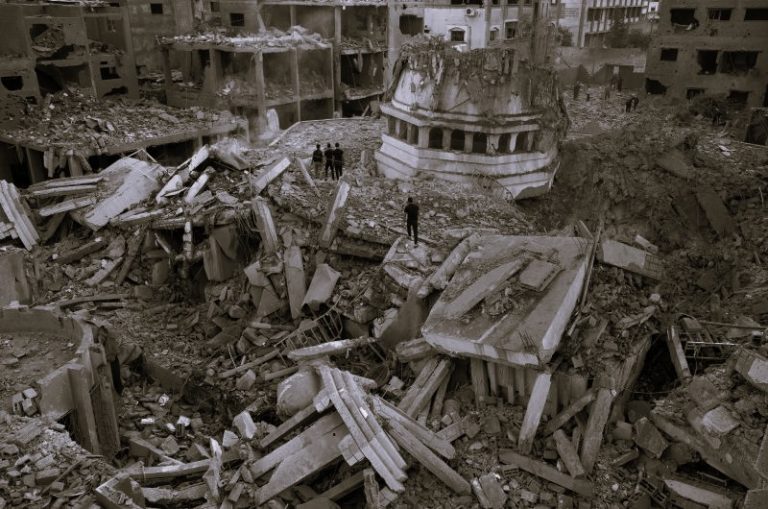
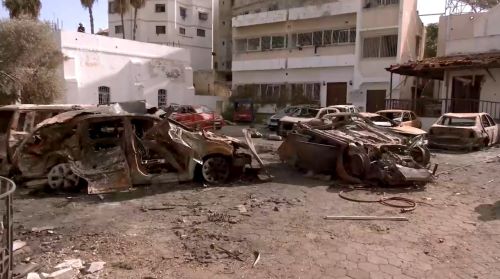
Hospitals are supposed to be sanctuaries. In Gaza, they have become the final stop in a chain of decisions that prioritizes suspicion over mercy.

By Matthew A. McIntosh
Public Historian
Brewminate
Life without Power
In Gaza, where the war has no horizon and the siege has no end, the most terrifying sound inside a hospital is not an explosion or a scream. It is silence. The silence of a ventilator gone dead. The stillness of an incubator without heat. The hum of a generator stalling, followed by nothing at all.
That moment, when the backup fuel runs out and the lights flicker off, is not metaphor. It is death. And it has become a regular occurrence.
Since late 2023, hospitals across the Gaza Strip have been gripped by a fuel crisis so severe that many can no longer function as medical facilities. They have turned, instead, into graveyards. Operating rooms are dark. Dialysis machines are still. Morgues overflow. The injured arrive with hope and often leave as names on a list.
The collapse of the healthcare system in Gaza is not incidental. It is not the unintended side effect of war. It is a deliberate consequence of siege, blockade, and military action. And its toll cannot be counted only in numbers.
It must also be counted in absences, in the lives that might have been saved had the power remained on just a few minutes longer.
A System Stripped of Its Lifeline
Hospitals, especially in conflict zones, depend on fuel for everything. It powers not only lights and machines but also ambulances, sterilization equipment, oxygen concentrators, refrigeration for medicines, and the most basic means of hygiene. Without fuel, a hospital is no longer a hospital. It is a building filled with ghosts.
In Gaza, electricity from the grid has long been unreliable. Even before the current war, rolling blackouts were common. Hospitals relied heavily on diesel generators, fueled by shipments allowed through the Kerem Shalom and Rafah crossings. But those shipments have slowed to a trickle.
According to the World Health Organization, only a fraction of Gaza’s required fuel reached hospitals during the early months of 2024. By March, many facilities had exhausted their reserves entirely. The largest trauma centers in northern Gaza were forced to shut down critical departments. Smaller clinics simply locked their doors.
By July 2025, only a handful of hospitals remain partially operational. Most function at skeletal capacity, relying on donated solar panels, fuel smuggled in at great risk, or emergency interventions that are too little and too late.
Death in the Shadows of Machines
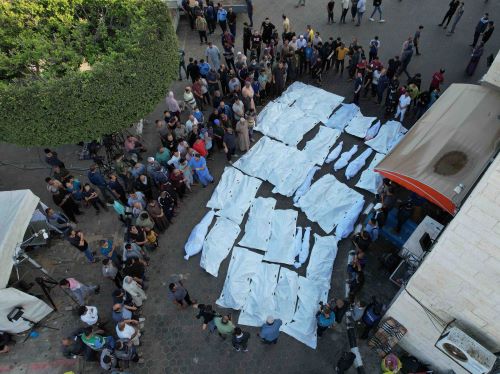
The stories from these hospitals are not abstract. They are personal. They are searing.
In Al-Aqsa Hospital, a newborn died in an incubator when the power failed during the night. The nurses, already stretched beyond exhaustion, were unable to keep him warm using blankets alone.
In Shifa, once Gaza’s largest and most advanced hospital, kidney patients were turned away when dialysis machines shut down. Some died within days. Others waited for miracles that never came.
In Khan Younis, a young man who survived an airstrike lost his life in surgery when the lights failed mid-operation. The surgeons could not continue by flashlight. He bled to death while they tried to suture by feel.
There are hundreds of such accounts. They do not always make headlines. But they mark the slow collapse of a system once intended to preserve life, not surrender it.
A Siege by Other Means
Fuel shortages in Gaza are not a natural disaster. They are a political decision.
Israeli authorities, citing security concerns, have long restricted the entry of fuel into Gaza, arguing that it could be diverted for military purposes. Hamas has, in some cases, misused resources intended for civilian use. But to treat all fuel as potential weaponry is to erase the boundary between military target and civilian necessity.
That erasure has led to catastrophe.
International humanitarian law requires that civilian infrastructure, including medical facilities, be protected during armed conflict. It also obligates all parties to allow and facilitate the rapid and unimpeded passage of humanitarian relief, including fuel for hospitals.
In practice, these obligations are not being met. Humanitarian convoys are delayed, rerouted, or denied entry. UN trucks have waited at border crossings for days while wounded patients die inside darkened corridors just a few kilometers away.
Efforts by Qatar, Egypt, and the UN to broker humanitarian pauses and secure fuel corridors have yielded inconsistent results. Ceasefire agreements break down. Crossings open briefly, then close again. Even when fuel is allowed in, it is rarely enough to restore full function.
The crisis is not just logistical. It is ethical.
Medical Neutrality in Collapse
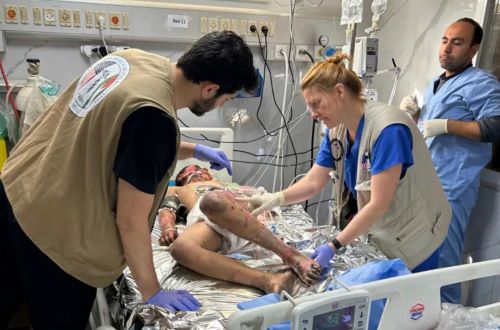
Doctors in Gaza have become symbols of impossible courage. Working in ruins, they perform surgery without anesthesia, deliver babies by candlelight, and triage the dying when there are no beds left.
Some have not left their posts for weeks. Others have lost family members even as they tried to save strangers. A few have been killed themselves, not in the line of battle, but in their wards, struck by artillery or shrapnel.
Medical neutrality, the idea that healthcare workers and facilities should be protected in war, is not a sentimental ideal. It is codified in international law. Yet in Gaza, hospitals have been bombed. Ambulances have been struck. Emergency responders have been denied safe passage.
Fuel starvation is simply another form of the same assault. It disables the system without firing a shot. It kills by deprivation rather than direct force.
The Cost of Indifference
The silence around Gaza’s hospital crisis is not just political. It is moral.
In global capitals, leaders issue statements about the need for “balance,” “proportionality,” and “restraint.” But when asked to secure fuel deliveries, to guarantee protections for humanitarian convoys, or to enforce the legal standards they claim to uphold, their actions falter.
The United States has urged Israel to allow more humanitarian aid but continues to supply military assistance without condition. European nations express concern but rarely pressure for fuel access with the same urgency they apply to ceasefire talks.
The United Nations has condemned the attacks on medical infrastructure but is increasingly sidelined, its appeals treated as background noise in a war where politics dominate every corridor of diplomacy.
And so, the hospitals remain dark. The operating tables stay cold. The dead continue to arrive.
Toward a Reckoning
At some point, when the war ends or pauses or fades into a different form, there will be an accounting. There will be reports, investigations, hearings. International observers will document every strike, every aid truck turned away, every facility left without power.
But the reckoning may come too late for those who needed a ventilator, an IV pump, or just a little heat to survive one more night.
What the fuel crisis in Gaza’s hospitals reveals is not only a failure of logistics or diplomacy. It is a collapse of moral clarity. The question is no longer whether the healthcare system can be saved. It is whether the world will admit what it has allowed to die.
Hospitals are supposed to be sanctuaries. In Gaza, they have become the final stop in a chain of decisions that prioritizes suspicion over mercy, politics over principle, and silence over responsibility.
In that silence, the machines have gone quiet. And with them, so have too many lives.
Originally published by Brewminate, 07.25.2025, under the terms of a Creative Commons Attribution-NonCommercial-NoDerivatives 4.0 International license.
